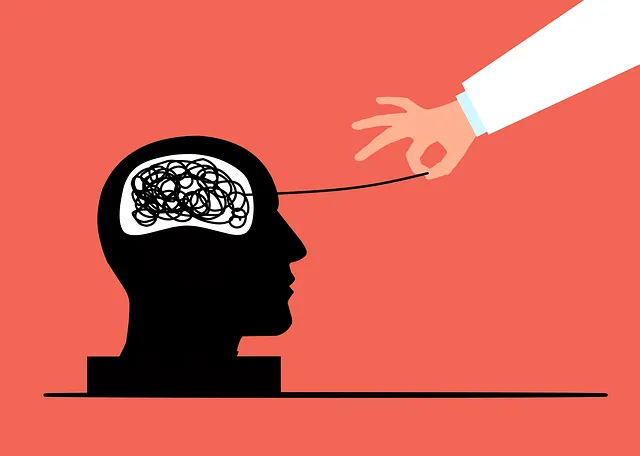Emotional intelligence (EI) is a critical skill for professionals at the Kaiser Permanente behavioral health phone number Westminster, fostering effective communication and relationships in healthcare. Through self-awareness, empathy cultivation, and mindfulness practices, mental health providers enhance their EI. This leads to improved patient interactions, stress management, and emotional regulation. Resources offered by the Kaiser Permanente behavioral health phone number Westminster, such as training programs and evidence-based practices like Compassion Cultivation, equip professionals with active listening, constructive conflict resolution, and cultural competency skills, ultimately improving patient outcomes and creating a more inclusive healthcare system.
Emotional intelligence (EI) is a game-changer in both personal and professional spheres. At the heart of effective communication, understanding EI’s foundations lies in self-awareness—a key aspect explored by Kaiser Permanente behavioral health experts via their Westminster phone services. This article delves into the essential elements of building EI: from cultivating empathy to managing emotions constructively and practicing active listening. Discover strategies to enhance connections and navigate relationships seamlessly.
- Understanding Emotional Intelligence: The Foundation of Effective Communication
- The Role of Self-Awareness in Building Emotional Intelligence
- Developing Empathy: A Key Component for Strong Relationships
- Managing Emotions Constructively: Strategies for Emotional Regulation
- Practicing Active Listening: Enhancing Connection and Understanding
Understanding Emotional Intelligence: The Foundation of Effective Communication

Emotional intelligence (EI) is a cornerstone of effective communication and interpersonal relationships. At Kaiser Permanente behavioral health phone number Westminster, professionals understand that EI involves recognizing, managing, and understanding emotions—both one’s own and those of others. This ability fosters empathy, enhances active listening, and promotes constructive conflict resolution, creating a more harmonious environment in both personal and professional settings.
Improving self-esteem and cultivating cultural competency among healthcare providers are crucial aspects of building EI. Through comprehensive training programs, mental health professionals can learn to navigate complex patient interactions with heightened sensitivity. This includes assessing risks and understanding the nuances of diverse populations, as highlighted by the growing importance of cultural competency training in healthcare. Such initiatives not only improve patient outcomes but also contribute to a more inclusive and effective healthcare system.
The Role of Self-Awareness in Building Emotional Intelligence

Emotional awareness is a cornerstone of building emotional intelligence (EI). It involves recognizing and understanding your own emotions, as well as their impact on your thoughts and behaviors. This self-reflection allows individuals to recognize patterns in their emotional responses, enabling them to make more thoughtful decisions. At Kaiser Permanente behavioral health phone number Westminster, professionals emphasize the importance of developing this skill as it forms the basis for effective communication and relationship building.
By cultivating self-awareness, individuals can better manage stress and challenges, fostering mental wellness. This includes practices like journaling, where one reflects on their experiences and emotions throughout the day, identifying triggers, and learning coping skills to navigate difficult situations. Ultimately, heightened self-awareness contributes to improved emotional regulation, allowing for a more balanced and adaptive response to life’s demands, much like a compass guiding one through uncharted territories.
Developing Empathy: A Key Component for Strong Relationships

Developing empathy is a cornerstone of building strong relationships and enhancing emotional intelligence. It involves stepping into another person’s shoes to understand their feelings, perspectives, and experiences. This skill is vital for creating meaningful connections, whether in personal or professional settings. By cultivating empathy, individuals can foster trust, improve communication, and resolve conflicts more effectively.
At Kaiser Permanente behavioral health phone number Westminster, we recognize the importance of empathy in our work with mental health professionals. Self-awareness exercises play a significant role in this process, allowing practitioners to reflect on their own emotions and biases while interacting with clients. This introspection facilitates a deeper understanding of others, leading to more compassionate and tailored support. Regular risk assessments for mental health professionals can also help identify areas where empathy development might be needed to ensure the best possible care is provided.
Managing Emotions Constructively: Strategies for Emotional Regulation

Emotional intelligence involves managing our own emotions and understanding those of others, a skill that can be cultivated through various practices. One effective strategy is to engage in compassion cultivation, which helps individuals develop a deeper sense of empathy and self-awareness. By practicing mindfulness and focusing on the present moment, people can gain better control over their emotional responses. This technique, often taught in Stress Management Workshops Organization, enables individuals to navigate challenging situations with calmness and clarity.
Additionally, communication strategies play a pivotal role in emotional intelligence. Open and honest dialogue allows for the expression of feelings while fostering understanding between individuals. Encouraging active listening and constructive feedback helps resolve conflicts and strengthens relationships. For those seeking guidance, the Kaiser Permanente behavioral health phone number Westminster can be a valuable resource, offering support and tools to enhance emotional regulation skills through evidence-based practices like Compassion Cultivation Practices.
Practicing Active Listening: Enhancing Connection and Understanding

Practicing active listening is a powerful tool for anyone looking to enhance their emotional intelligence and mental wellness, as demonstrated through Kaiser Permanente behavioral health phone number Westminster’s resources. It involves more than just hearing someone speak; it requires focused attention and understanding to appreciate the speaker’s perspective fully. By actively listening, you not only strengthen your connection with others but also gain deeper insights into their emotions and thoughts.
This skill is particularly useful in various settings, from personal relationships to professional environments. For instance, a Mental Wellness Podcast Series Production might incorporate self-awareness exercises that encourage active listening to foster better communication and empathy among hosts and listeners. Social Skills Training programs can also benefit from these techniques to improve interaction dynamics and create more supportive communities.
Emotional intelligence is a vital skill that fosters strong relationships and enhances communication. By understanding these key components, as highlighted by the Kaiser Permanente behavioral health phone number in Westminster, individuals can navigate their emotional journeys more effectively. Self-awareness, empathy, constructive emotion management, active listening, and other practices outlined here serve as a foundation for personal growth and improved interactions with others. Investing time in developing these abilities can lead to richer connections and a more fulfilling life.






